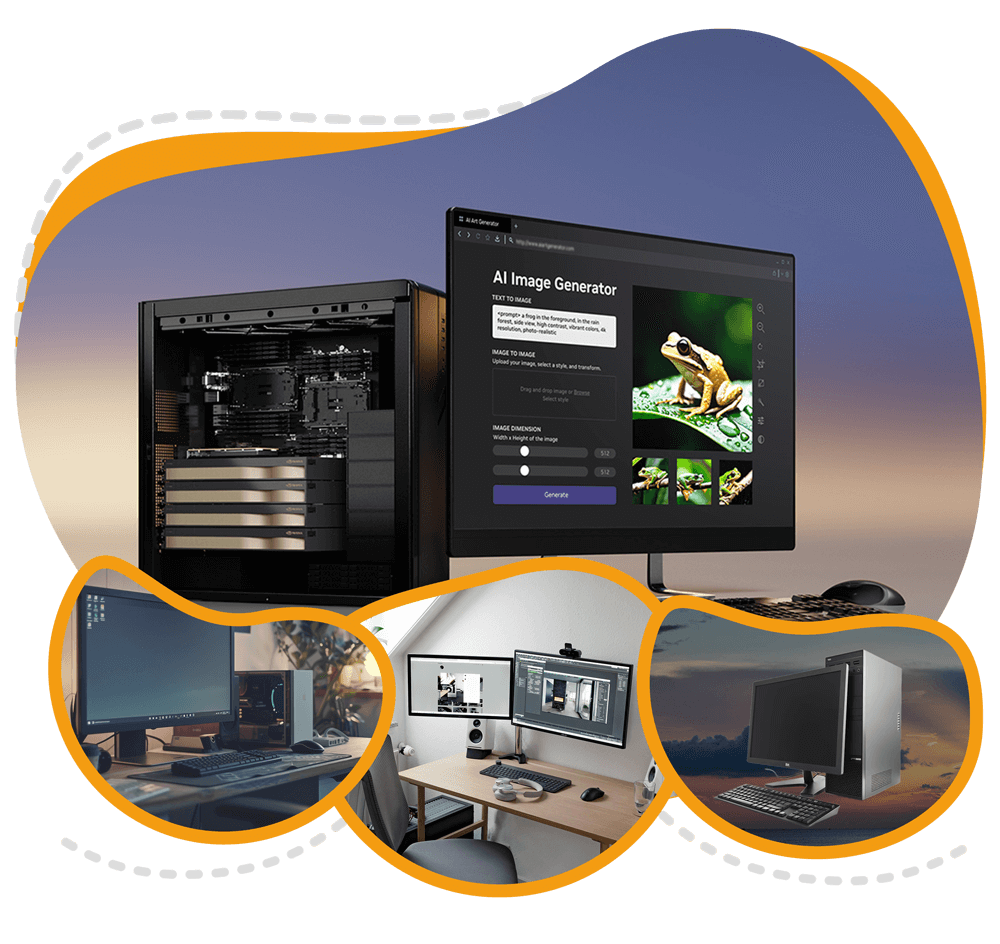Get The Best Office Equipment
in Orlando & Central Florida
Ready to upgrade your office? CFL-IT give you the best brands of high-speed scanners, multifunction printers, monitors, mini PCs, and powerful workstations. Also let us know what kind of equipment you need for your office, home or your working area. Contact us today!

Get the Next-Level Workstations
in Orlando & Central Florida
Need a powerful computer that fits your budget? CFL-IT offers a wide range of workstations from top brands, whether you need an affordable option or a high-end machine. Ideal for complex data analysis or creative projects, You can get a workstations that give you a better performance and value. Contact us today!

Buy All-in-one Mini PC
in Orlando & Central Florida
Looking for a mini computer? CFL-IT offers a range of Mini PCs from all brands, catering to both budget-friendly and high-end needs. These compact PCs feature efficient heat dissipation and low power usage, making them perfect for various applications. Get a quote today!

Get the High-Quality Monitors
in Orlando & Central Florida
Do you need of a top-quality monitor? CFL-IT offers brands monitors at affordable price and premium preferences. Select from FHD, QHD, or UHD/4K for outstanding display clarity. Perfect for mini PCs and workstations, these monitors are ideal for both professional and personal use. Place an order today!

Multifunctional Printers
in Orlando & Central Florida
Do you need a multifunction printer? CFL-IT give you an extensive selection of top-brand printers to fit any budget, suitable for both personal and professional needs. Whether for home, office, or business, find the perfect printer to meet your requirements. Order now for exceptional quality and great value!

Get The High Speed Scanners
in Orlando & Central Florida
Looking for a top-quality high-speed scanner? CFL-IT offers a diverse selection of leading-brand scanners, including laser, CCD, and 2D models, to fit any budget. Whether for home, office, warehouse, medical facilities, or retail, these scanners ensure fast, reliable performance. Reach out today to secure the best value and exceptional quality!

Buy High-Quality Fax Machines
in Orlando & Central Florida
Do you need a fax machine? CFL-IT offers a wide range of top-brand fax machines designed to fit any budget, perfect for home and office use. Whether for personal or business document transmission, discover the ideal fax machine to suit your needs. Order now for fast, efficient communication and outstanding value!

Page Not Found!
The page or file /blog/watch-out-for-the-predictions-and-trends-for-the-future-of-internet-technology/ does not exist! It may have been removed.
If you typed in this Page's address, please make sure the spelling is correct.
